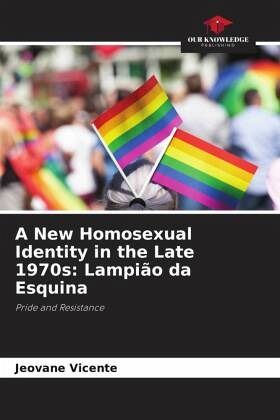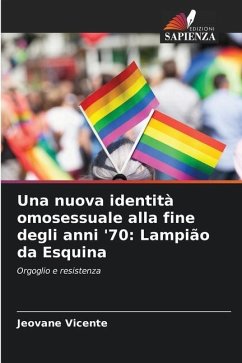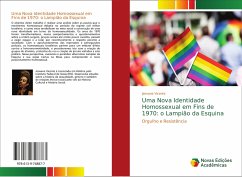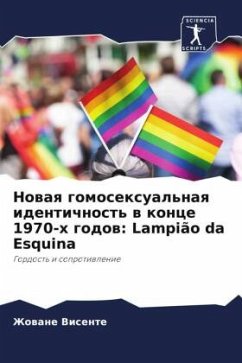
A New Homosexual Identity in the Late 1970s: Lampião da Esquina
Pride and Resistance
Versandkostenfrei!
Versandfertig in 6-10 Tagen
27,99 €
inkl. MwSt.

PAYBACK Punkte
14 °P sammeln!
The aim of this paper is to analyse the agendas debated by the homosexual movement during the period of the Brazilian military regime, and how they sensitised the social environment to the construction of a new identity around homosexuality. The 1970s were transformative, new behaviours and questions about the order emerged, social groups hitherto little heard, began to demand space and fight for recognition and respect in society. With the deepening of police repression and persecution, Brazilian homosexuals began to fight directly against heteronormativity, and we will see this with the crea...
The aim of this paper is to analyse the agendas debated by the homosexual movement during the period of the Brazilian military regime, and how they sensitised the social environment to the construction of a new identity around homosexuality. The 1970s were transformative, new behaviours and questions about the order emerged, social groups hitherto little heard, began to demand space and fight for recognition and respect in society. With the deepening of police repression and persecution, Brazilian homosexuals began to fight directly against heteronormativity, and we will see this with the creation of activist groups, street protests and the creation of newspapers aimed at this public. In this perspective, we will use the alternative periodical Lampião da Esquina and its section Cartas na Mesa to understand the new homosexual positioning.












